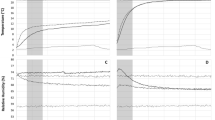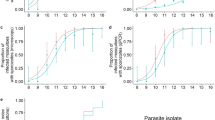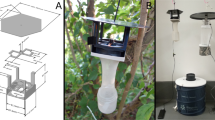Abstract
THE successful preparation of permanent mounts of mosquito larvæ has for long been an arduous and uncertain operation; mounts in balsam are timeconsuming and frequently unsatisfactory, while mounts in chloral gum media do not keep well in some climates. The most recent advance is the medium of Bhatia1, consisting of pine rosin in eucalyptus oil, which is simple to use and gives a fair result. However, comparative tests of this medium against another which I have recently developed indicate that the latter gives an even more satisfactory result.
This is a preview of subscription content, access via your institution
Access options
Subscribe to this journal
Receive 51 print issues and online access
$199.00 per year
only $3.90 per issue
Buy this article
- Purchase on Springer Link
- Instant access to full article PDF
Prices may be subject to local taxes which are calculated during checkout
Similar content being viewed by others
References
Bhatia, M. L., Ind. J. Malar., 2, No. 4, 283 (1948); Nature, 164, 64 (1949).
Author information
Authors and Affiliations
Rights and permissions
About this article
Cite this article
COLLESS, D. An Improved Method for Mounting Mosquito Larvæ. Nature 166, 486–487 (1950). https://doi.org/10.1038/166486b0
Issue Date:
DOI: https://doi.org/10.1038/166486b0
This article is cited by
Comments
By submitting a comment you agree to abide by our Terms and Community Guidelines. If you find something abusive or that does not comply with our terms or guidelines please flag it as inappropriate.



